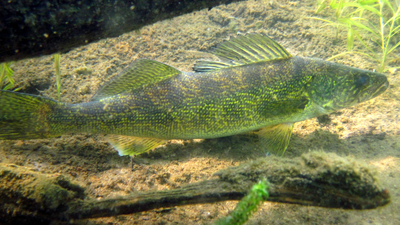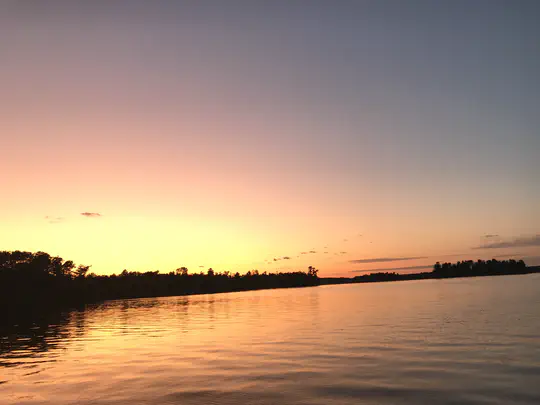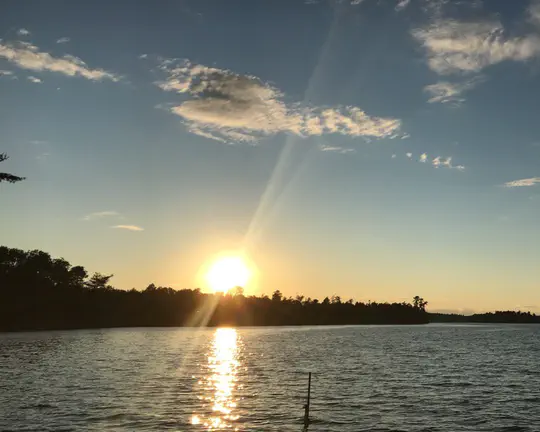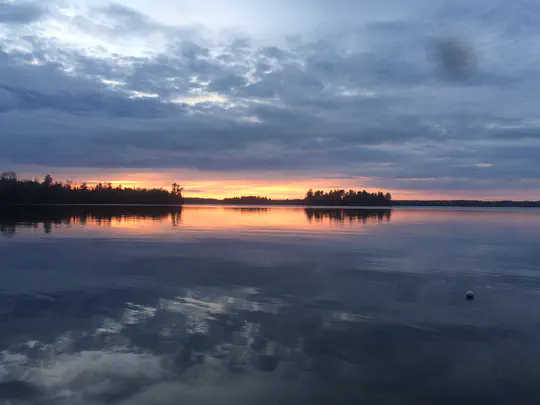Walleye Bright Spots
Welcome to the Bright Spots Website!
Habitat loss, pollution, species introductions, and overfishing have impacted inland fisheries for decades. The impact of climate change threatens to compound these other factors. Our work focuses on walleye fisheries of inland lakes of the Upper Great Lakes region, which have been declining since the early 2000s. Rather than the usual focus on understanding walleye population declines, our research emphasizes ‘bright spots’ - fisheries success stories. We seek to understand the drivers associated with fisheries that perform far better than expectations (‘bright’ fisheries).

Projects
Project Publications
Institutions
I am a fisheries biologist with interests relating to the conservation and management of fish communities, the influence of climate change on the ecology, fisheries, and population dynamics within lake systems, human effects on ecosystems, and water column effects due to changing light conditions.
I am interested in the anthropogenic impacts on aquatic ecosystems, mainly in the form of invasive species and climate change.
Ben Vasquez
MS Student - Univeristy of Wisconsin - Stevens Point
I am a graduate student at the University of Wisconsin-Stevens Point studying walleye habitat use in three northern Wisconsin lakes. My current project involves archival tagging and acoustic telemetry to evaluate walleye temperature and light-at-depth use. My other research interests include trophic ecology of sportfish and fisheries management.
Holly Embke is a Research Fish Biologist with the U.S. Geological Survey’s Midwest Climate Adaptation Science Center. Holly’s research aims to understand conditions to support self-sustaining inland fish communities in a changing climate across a range of scales. Her work is collaborative and seeks to inform the conservation of inland fishes by working directly with partners to address areas of management concern and develop adaptation strategies.
I am an assistant professor of fisheries ecology at the University of Minnesota Twin Cities. My research focuses on freshwater ecosystems in the context of environmental change, with a particular focus on climate change impacts on fish communities.
I am Professor in the Department of Integrative Biology and the Director of the Center for Limnology at the University of Wisconsin - Madison. My research is focused on lakes, and specifically how humans and a broad range of human activities affect lakes. Much of my work is done from a food web perspective.
I am an Associate Professor in the Department of Integrative Biology and the Center for Limnology at the University of Wisconsin - Madison. My research is focused on understanding the combination of human and ecological factors that contribute to sustainability of marine and freshwater fisheries.
Dr. Zachary S. Feiner
Principal Investigator - University of Wisconsin Madison - Wisconsin Department of Natural Resources
WICCI Fisheries Working Group
WDNR Fisheries Research
I am a research scientist with the Wisconsin Department of Natural Resources and UW-Madison Center for Limnology. My research interests involve the human impacts on freshwater ecosystems, including climate change impacts on fish populations and the interrelationships between fisheries management and fish populations that drive the sustainability of recreational fisheries.
Dr. Aaron D Schultz
Collaborator - Great Lakes Indian Fish and Wildlife Commission
Website
Midwest Glacial Lakes Partnership
Fisheries Conservation Foundation
Boozhoo (hello), my name is Aaron Shultz, and I am a climate change fisheries biologist with the Great Lakes Indian Fish and Wildlife Commission (GLIFWC). My research and management interests include weaving together indigenous knowledge and scientific knowledge, evaluating the effects of catch-and-release angling, assessing the vulnerability of beings (species) to climate change, developing climate adaptation plans, and designing rehabilitation plans for aquatic ecosystems. In addition to my role at GLIFWC, I serve on the steering committee for Midwest Glacial Lakes Partnership and am on the board of directors for the Fisheries Conservation Foundation.
Dr. Greg G. Sass
Collaborator - Wisconsin Department of Natural Resources
I am a fisheries research scientist broadly interested in fisheries ecology, fisheries management, and the sustainability of exploited fish populations with considerations of ecosystem-based perspectives on habitat conservation and enhancement and fisheries as social-ecological systems providing subsistence and recreational ecosystem services.
Contact
Feel free to contact me with any questions about the project!
- qcsmith2@wisc.edu
- Hasler Laboratory of Limnology - 680 Park St., Madison, WI 53706


